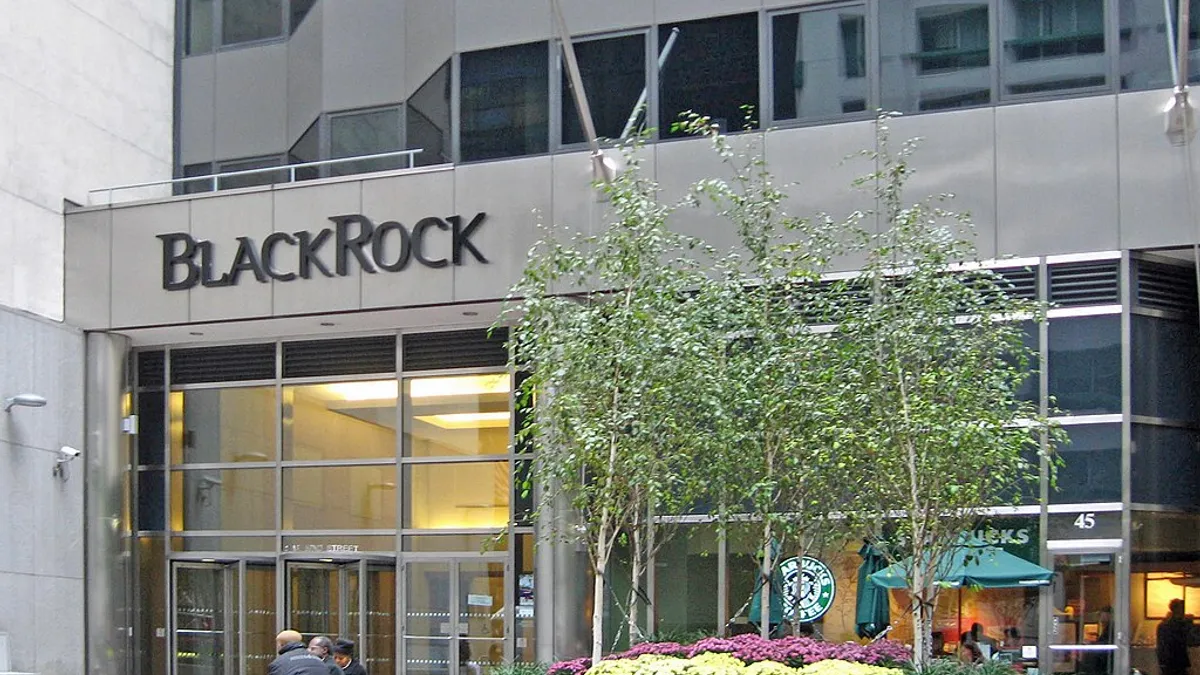A day after Texas’ comptroller placed BlackRock on its “divestment” list — for companies that are seen as “boycotting” the fossil-fuel sector — the chief client officer of the world’s largest asset manager vocalized his displeasure.
“This is anti-competitive,” Mark McCombe, the BlackRock executive, told the Financial Times on Thursday. “We have never turned our back on Texas oil and gas companies.”
McCombe noted that BlackRock counts $290 billion in Texas-based assets and stands as the largest investor in the state’s oil and gas industry.
If McCombe sees BlackRock as being singled out, there may be a paper trail for that argument.
“As you prepare the official list of companies that boycott energy companies, I ask that you include BlackRock, and any company like them,” Texas Lt. Gov. Dan Patrick wrote to state Comptroller Glenn Hegar on Jan. 19 — before the research for the list began.
In his letter, Patrick cited “grave concerns” that BlackRock’s “public statements and actions do not reflect its sentiments presented to my office.”
Chief among Patrick’s concerns was that BlackRock CEO Larry Fink issued his annual letter to CEOs — in which he affirmed the company’s commitment to transitioning to a net-zero economy — days after company representatives met with Patrick’s office to voice their support for Texas and its “vast energy footprint.”
“Committing to a ‘net zero’ carbon strategy is beyond applicable environmental standards in federal and state law,” Patrick wrote in January. “Therefore, BlackRock is boycotting energy companies by basing investment decisions on whether a company pledges to meet BlackRock’s ‘net zero’ goals.”
Hegar in March and April sent surveys to more than 150 companies, seeking data on whether they were snubbing fossil fuels in favor of sustainable investing, or limiting oil- and gas-tied investments with quotas.
The effort was limited to publicly traded finance firms — so BlackRock rivals Vanguard and Fidelity were not included (though both asset managers have mutual funds that appear on a separate list Texas marked for divestment Wednesday).
Hegar’s office used corporate environmental, social and governance (ESG) ratings from MSCI to whittle the list of 150 down to 19 target companies, which were invited to explain their position on fossil fuels. Some provided information that satisfied the state’s concerns, Hegar told the Financial Times. Those that did not, or failed to respond, made the final list of 10.
“The process was open and transparent,” Hegar said Thursday. “No matter what you do, you run the risk of criticism.”
McCombe on Thursday blasted the process by which Texas conducted its investigation.
“What they’ve done by taking this very arbitrary decision is to effectively say to every company out there, not just financial services companies out there, that this may be you at some point in time,” he told Bloomberg. “If we don’t need facts to actually arrive at a list, then, you know, what’s the basis upon which I want to do business in Texas?”
Notably absent from Texas’ final list are any U.S.-based banks. Three, however — JPMorgan Chase, Wells Fargo and Goldman Sachs — made the earlier list of 19, as did BlackRock competitor Invesco, according to the Financial Times.
McCombe noted BlackRock’s status as the only U.S. company on Texas’ final list in his comments Thursday.
“Trying to stop a U.S. company from doing business in its own backyard is bad for business,” he told the Financial Times. “It looks opportunistic in this climate.”
Companies on Texas’ final list have 90 days to convince the state to reconsider — and McCombe said BlackRock planned to work with Hegar’s office to do just that.
However, McCombe said, Texas’ list fails to send a message that the state’s business environment is “pro-free market and pro-capital.”
“This decision, which is not fact-based, does not instill confidence,” McCombe told Bloomberg. “This may look like a localized issue down in Texas, but if you play it out, it’s a little bit of a worrying sign.”














